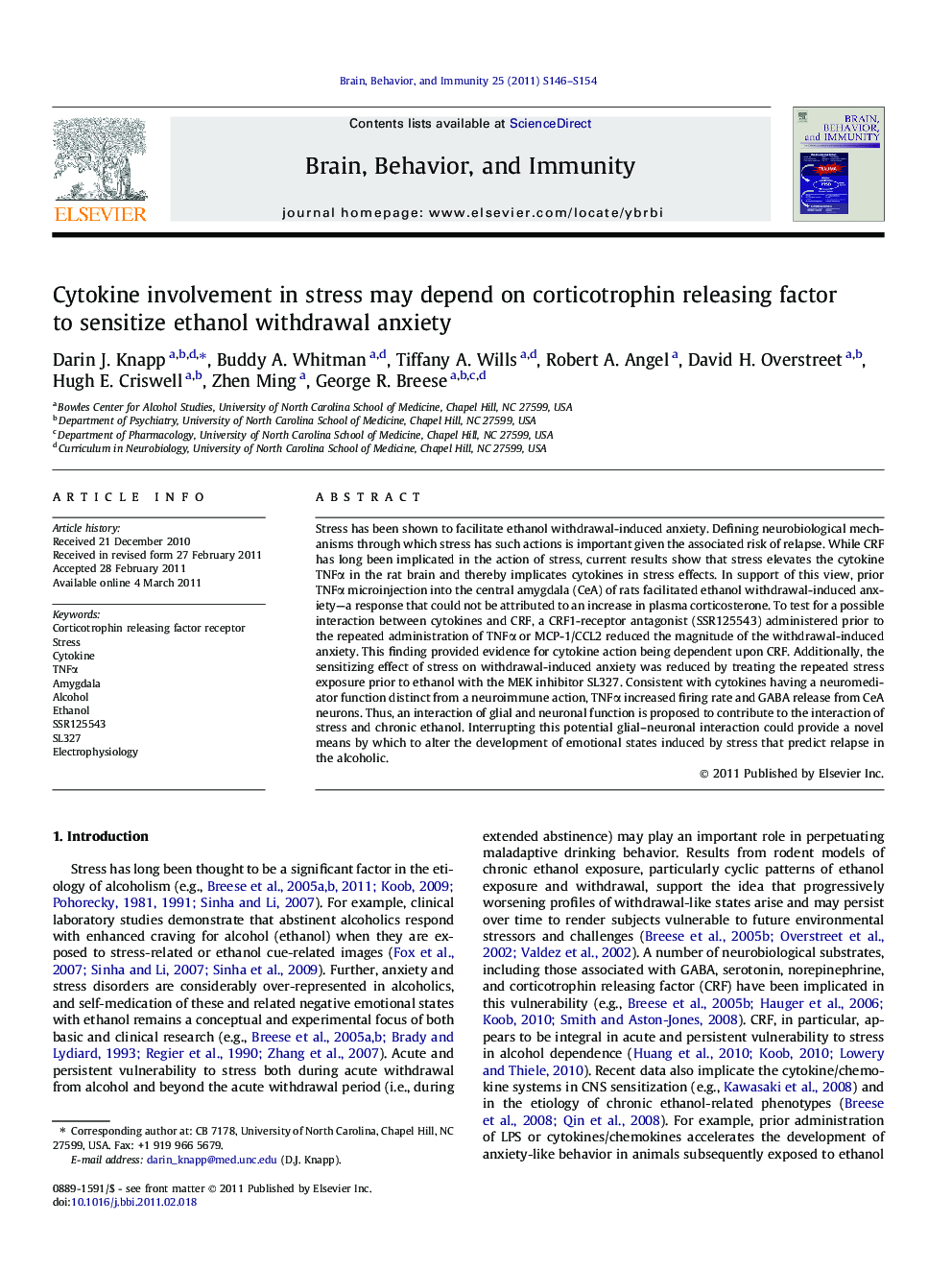| Article ID | Journal | Published Year | Pages | File Type |
|---|---|---|---|---|
| 922400 | Brain, Behavior, and Immunity | 2011 | 9 Pages |
Stress has been shown to facilitate ethanol withdrawal-induced anxiety. Defining neurobiological mechanisms through which stress has such actions is important given the associated risk of relapse. While CRF has long been implicated in the action of stress, current results show that stress elevates the cytokine TNFα in the rat brain and thereby implicates cytokines in stress effects. In support of this view, prior TNFα microinjection into the central amygdala (CeA) of rats facilitated ethanol withdrawal-induced anxiety—a response that could not be attributed to an increase in plasma corticosterone. To test for a possible interaction between cytokines and CRF, a CRF1-receptor antagonist (SSR125543) administered prior to the repeated administration of TNFα or MCP-1/CCL2 reduced the magnitude of the withdrawal-induced anxiety. This finding provided evidence for cytokine action being dependent upon CRF. Additionally, the sensitizing effect of stress on withdrawal-induced anxiety was reduced by treating the repeated stress exposure prior to ethanol with the MEK inhibitor SL327. Consistent with cytokines having a neuromediator function distinct from a neuroimmune action, TNFα increased firing rate and GABA release from CeA neurons. Thus, an interaction of glial and neuronal function is proposed to contribute to the interaction of stress and chronic ethanol. Interrupting this potential glial–neuronal interaction could provide a novel means by which to alter the development of emotional states induced by stress that predict relapse in the alcoholic.
Highlight► Cytokines and stress may sensitize ethanol withdrawal anxiety through common actions involving corticotrophin releasing factor.
